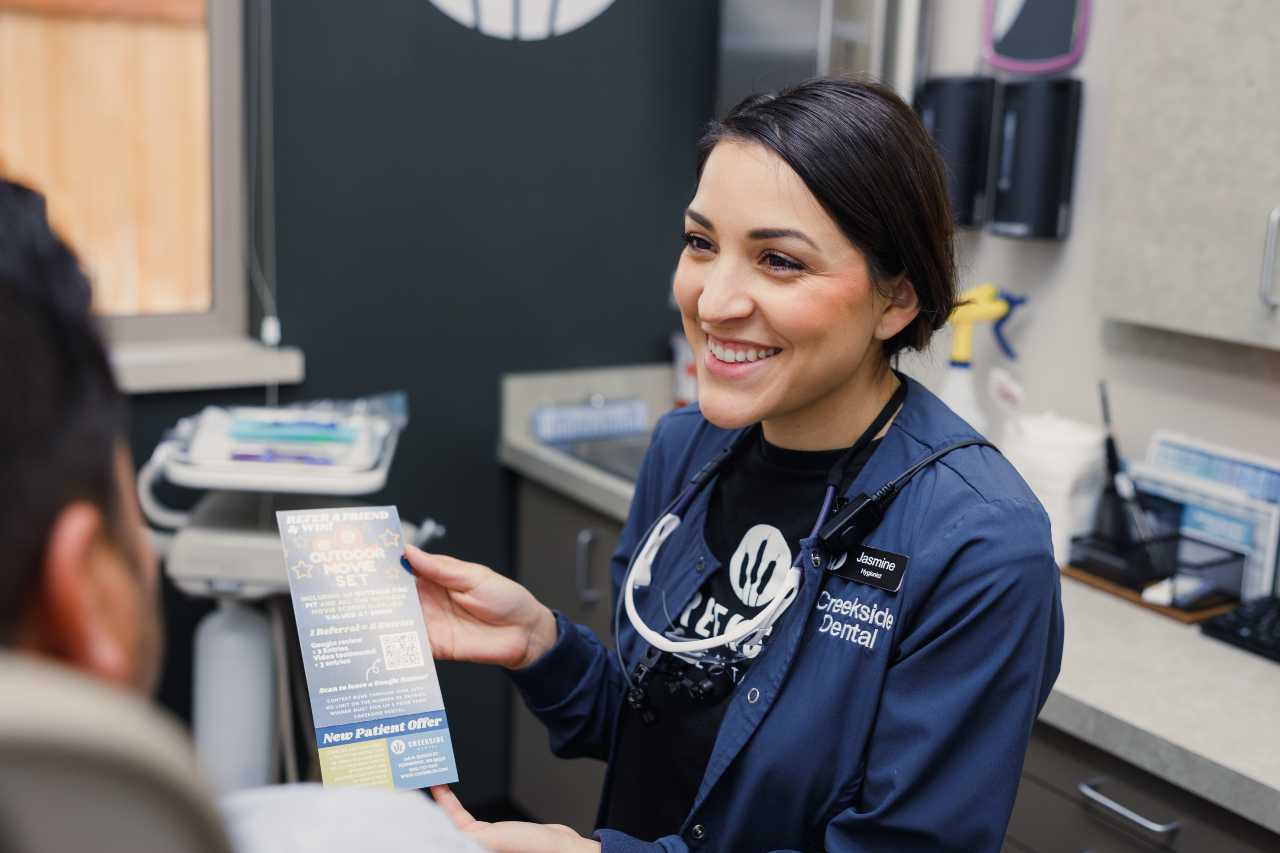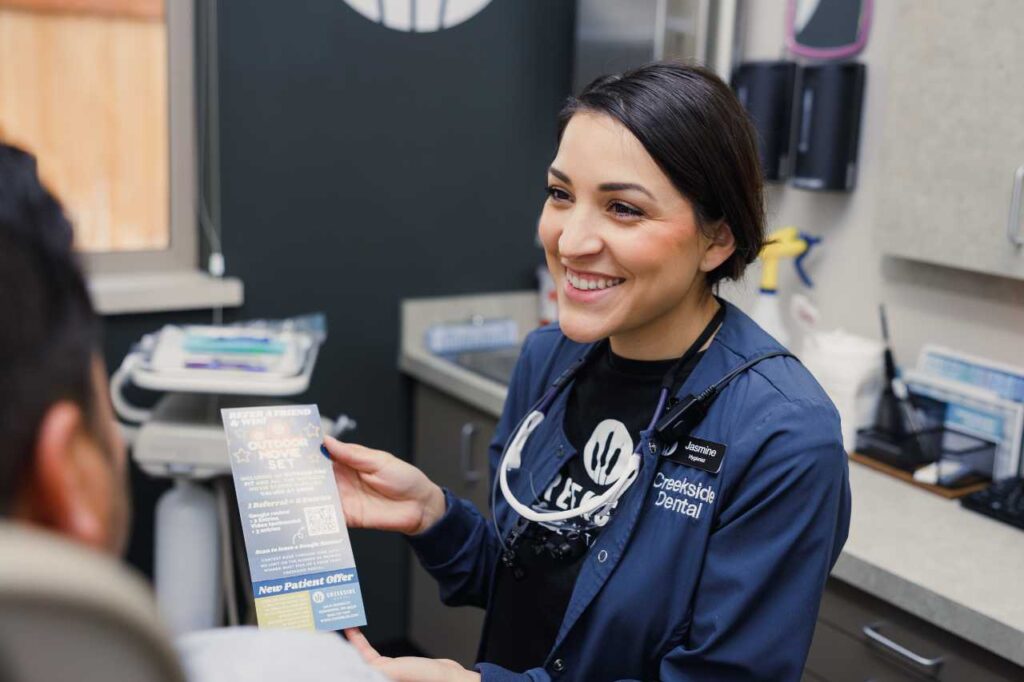Now, this does not mean that if a person has a cavity the people they come in contact with will automatically “catch a cavity”, but the bacteria found in cavities can actually be passed along. As a parent, doesn’t that sound a little scary? For instance, has your baby ever dropped his pacifier on the ground and in turn you picked it up, “cleaned” it off by putting it in your mouth first? If the food was too hot, did you blow on it to cool it down before feeding it to your child? This information was a surprise to me because growing up I saw these practices all the time. Enjoy kissing your beloved partner or use one another’s straws or eating utensils. These are very common behaviors, but can be very harmful. Decay-causing bacteria known as S. mutans or Streptococcus mutans is the bacteria found in saliva which can contaminate just about anything.
I realized how many members of my family did not know that doing these types of things could be unsafe. It was a “normal” behavior. So then I wondered if it was just my family, or maybe it was part of my Hispanic culture. Looking back at all of the patients that have sat in my dental chair, I learned that it was not only my family, or the Hispanic culture, but it was everyone. One of my favorite parts about being a dental hygienist is being able to help people without them having to be a patient of mine, it can be anyone, and in the simplest way. People do not know to not do something if they were never taught not to do it.
Did you know we are not born with these destructive bacteria in our mouths, but once bacteria are introduced to us they will begin to colonize? When it comes to children, it is not only mothers and fathers that can play a role in transferring these bacteria, but it can be anyone that comes in contact with the child/baby. Grandparents that adore and give kisses, siblings that play together and share sippy cups, curious babies that put their hands in the mouth of the person holding them, just about anyone. If there are cavities that have been untreated, meaning they have not been replaced with a dental restoration (a filling), then that bacteria is more likely to be transferred.
If you are unsure if you have cavities, have your dentist do an exam, that way if there are any cavities, they can be treated while they are still small. Preventing tooth decay can be done even before a person has any teeth. It is important to know the health of our teeth at all ages, no one is exempt from getting cavities.
